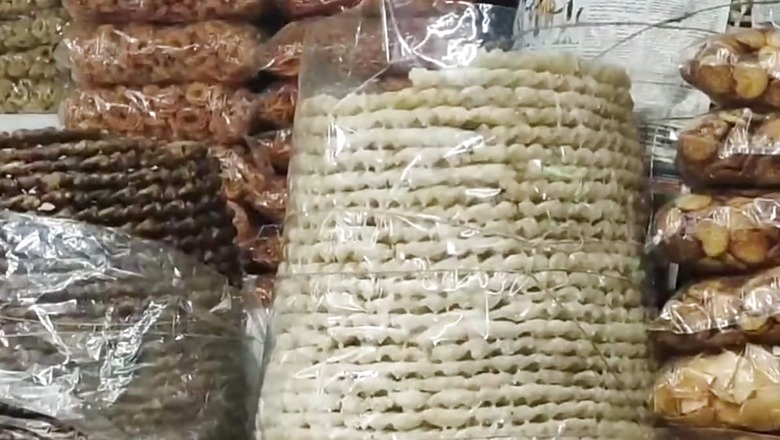
views
During the Aadi Tapasu festival in Sankaran Kovil temple, a candy named Tapasu Candy, made from rice flour, is widely sold. This candy comes in various types like chikkis, sponge candies, honey candies and sugar candies. Tapasu Candy is known to be exclusive to Sankaran Kovil in Tenkasi, Tamil Nadu. Locals there highly enjoy it and it’s referred to by different names such as ladder candy, DNA candy, dark candy, black candy, sugar candy and more.
You might be curious about when this candy is available outside the festival. Actually, Tapasu Candy is only found during the local Aadi Tapasu festival and is rarely available at other times. During the festive season, even roadside stalls will have abundant stacks of it for sale. It’s not just the locals of Sankaran Kovil who enjoy it; people from neighbouring areas who come for the Aadi Tapasu festival also purchase large quantities of this candy.
Tapasu Candy comes in various variations depending on the type of sugar used. If palm jaggery is used, the candy appears black, while white sugar results in white candy. The key component in making this renowned candy is rice flour.
The preparation process entails drying the rice and then grinding it into fine flour at a flour mill. This dry rice flour is combined with urad dal flour and water to create a smooth, lump-free paste. This mixture is allowed to rest for a duration of 3 hours.
Following the three-hour rest, a hole is made at the bottom of a brass jug and the flour mix is poured into it. To fry the mixture, oil is heated in a large vessel and small circles of the flour mixture are dropped in, creating a ladder-like shape. This frying process resembles making Jalebi. Once the mixture turns crispy, it’s taken out of the oil and soaked in sugar syrup. Palm candy, it’s soaked in palm jaggery syrup. This completes the process of making Tapasu Candy! The candies are then stacked on top of each other, forming a tower, and they’re ready for sale.
Various types of candies, including sugar candy and black palm candy, are sold at a rate of just Rs 200 per kilogram. Candy makers typically prepare small batches of less than 10 kilograms on regular days, but during special events, they ramp up production to around 50-60 kilograms per day.




















Comments
0 comment